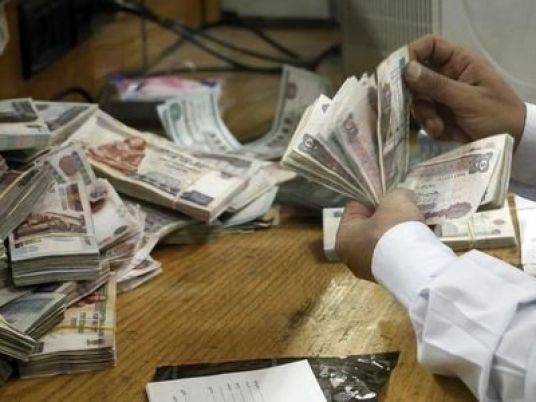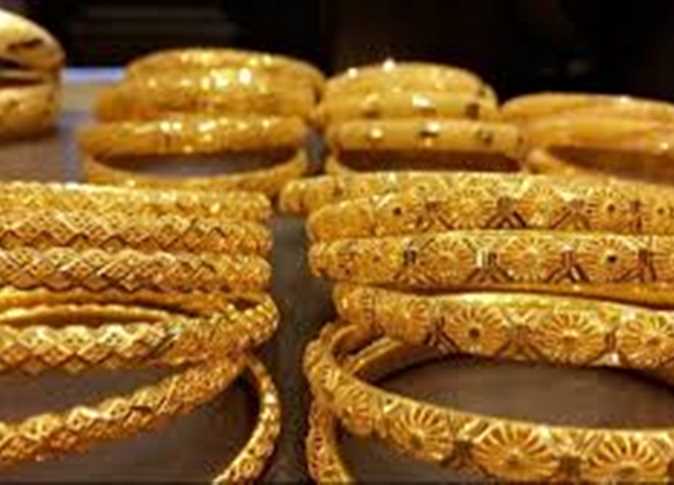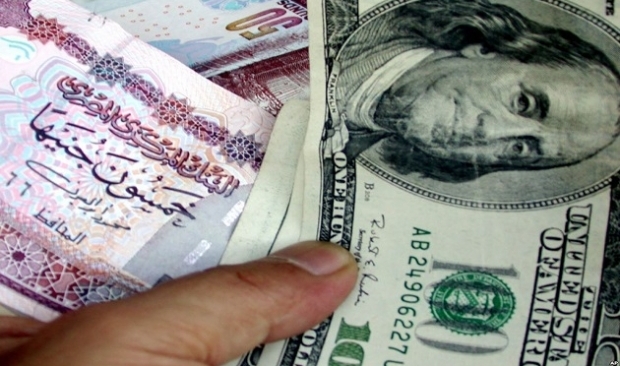
Egypt's central bank let the pound weaken on Monday for the second day running, a move analysts said was aimed at stamping out a thriving black market as inflation concerns ease.
The bank allowed the pound reach LE 7.24 per US dollar at Monday's auction, its weakest level since dollar sales were introduced in December 2012, and was expected to let it depreciate further to close the gap with the unofficial rate that has been widening for months.
The central bank made a similar move in the first half of 2014, but had held the pound steady at LE7.14 for over six months amid what currency traders said was concern that further depreciation would fuel inflation.
Inflation spiked in Egypt after the government slashed energy subsidies in July, prompting the central bank to raise rates by 100 basis points that month.
The rates at which banks are allowed to trade dollars are determined by the results of the central bank sales, giving it effective control over official rates, whereas many businesses and ordinary people use the black market.
It introduced a fourth weekly auction in December to ease mounting currency pressure, but this proved ineffective. Foreign reserves fell to $15.33 billion December after Egypt repaid a Qatari deposit and defended the pound.
Expectations the bank would devalue had grown since it announced a surprise 50-basis-point cut in benchmark interest rates on Thursday, saying plummeting global oil prices had eased the inflation outlook.
Egypt is an energy importer and a major wheat importer. Global commodities fluctuations can have a major impact on its balance of payments and inflation, affecting rate decisions.
Hany Genena, head of research at Pharos Securities Brokerage, was the only economist of five polled by Reuters last week to forecast a rate cut and devaluation.
"We see the both the Egyptian pound and interest rates going down further in 2015. We comfortably see the official exchange rate converging to the parallel rate," Genena said on Monday.
"The parallel rate is a very reliable proxy of the equilibrium exchange rate given that a significant bulk of transactions, particularly private sector transactions, are executed at this rate."
The bank offered $40 million and sold $38.4 million at a cut-off price of LE 7.24 pounds per dollar on Monday, weaker than Sunday's official rate of LE7.19 .
It did not give a reason for the move and could not be immediately reached for comment.
However, the pound was still changing hands in the black market at a much weaker rate of LE7.87 per dollar on Monday, one trader said. That level was weaker than the rate of LE7.80 quoted on Sunday, meaning the gap between the official and unofficial rates widened slightly despite the depreciation.
The International Monetary Fund has urged Egypt to allow more exchange rate flexibility to boost exports and competitiveness.




